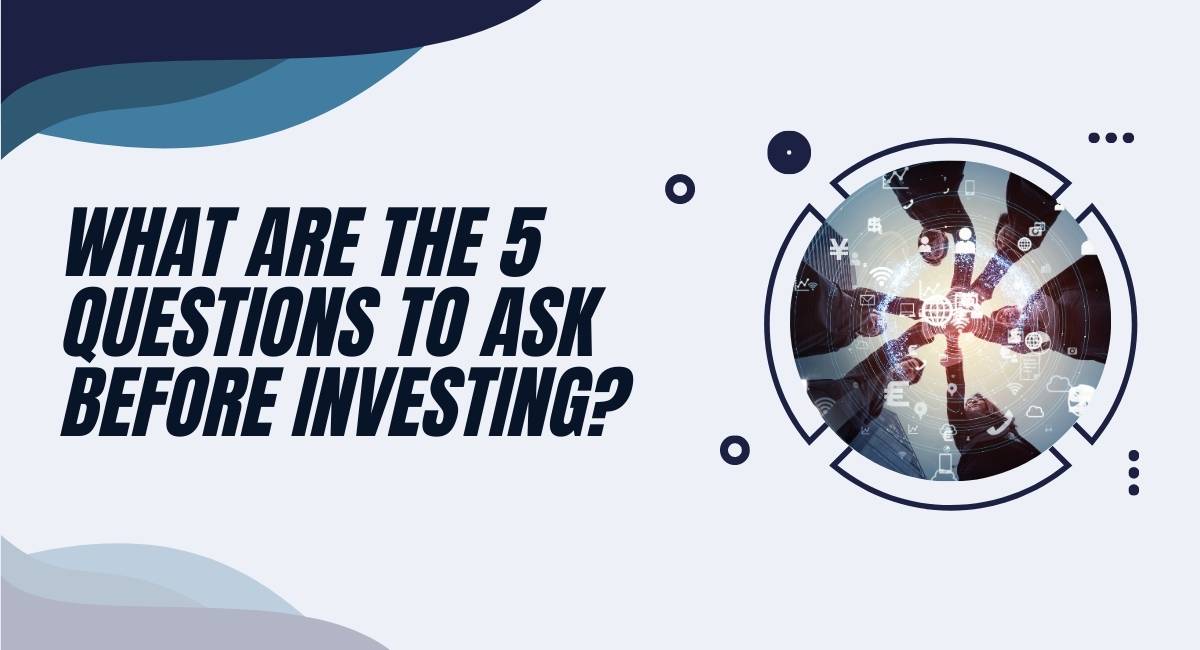Investment is not just about dollars and cents. It’s a process of investing your time, money, and energy into something you believe will pay off in the long run. However, before investing in anything, it’s best to ask some questions. These questions are to help you determine if that investment is suitable for you. The questions exercise to analyze your situation and the investment situation. Whether you’re thinking about investing for the first time, changing a previous investment, or simply anxious to learn more, we will cover the five most important questions you should ask before committing your money. The critical question is: how much are they going to keep? We will also explain how investment returns work generally and then delve into how five famous brokerage firms compare on one of their most important metrics: the percentage of assets kept after trading costs.
Is the Seller Licensed?
Before handing over your money, you have a right to know that the person or company you’re dealing with is properly licensed. The Financial Industry Regulatory Authority (FINRA) created a list of brokerage firms licensed to sell securities subject to its authority. If the company is on this list, it is legally required to provide you with a full range of investment services and should not be involved in fraudulent practices. When locking down investment brokers, you should ensure they are licensed and act with integrity. A licensed firm will also be able to help you with your tax records and respond quickly if you have questions about the actual performance of your portfolio.

Is the Broker Profitable?
Brokers that don’t make money will not keep your money. The relationship is simply because you give a broker money, and the broker gives you returns. You know what kind of performance you can expect when it comes to your hard-earned savings. Most brokerages hide their fees in acronyms like “commission” or “firm markup.” In these cases, commissions are a set percentage of your investment, and firm markups are more flexible. A proper definition of an industry fee would be any amount charged by the brokerage house. Understand how investment returns work in general terms: Returns are the percentage of your investment that you have received back in dividends and capital gains.
Is the Investment Registered?
Registered investments come with additional disclosures, costs, and benefits. Before buying that obscure mutual fund or commodity, know what you’re getting yourself into. The type of investment you acquire determines how you can sell it, when you can sell it, and the costs associated with it. Smart investors check to see if the assets they are considering are registered. Registered investments generally come with a more significant initial buy-in, but you can also take advantage of tax benefits and manage them yourself. If the investment needs to be registered, you might need more paperwork and face more fees if you want to get out early. Although some assets are best left alone for long periods, there may be times when your investment needs attention.

Do You Understand the Investment?
Understanding the actual value of an investment before you buy makes all the difference. If you need help understanding an investment, it’s easy to go into it blindly, be exposed to risk, and lose money. In addition to taking a close look at the investment’s performance over time, be sure to ask your adviser what they think of the investment’s current price. If the asset is a stock or a bond, make sure you understand the company’s financials, how it works, and what makes it attractive. Understanding an investment’s actual value also means understanding its risks; risk is not always tied to reward. Sometimes taking less risk means taking less return.
Is the Investment in Your Plan?
When you buy into a plan, you’re taking the risk that your investments will outperform the market. This is especially true if you invest in high-risk or experimental assets like annuities, real estate, and cryptocurrency. Ask your adviser how much return you are getting compared to what the market is returning. Many investment plans demand that your returns be more significant than any reasonable benchmark before they will allow you to keep them. In this case, it pays to understand investment returns as compared to how much risk they entail. If you’re buying individual stocks, you will likely need a nimble brokerage account and be able to shift between funds or stocks as necessary quickly.
In a few instances, Investment returns were tied to the amount of risk taken and the time held. By reading this guide and learning how investment returns work, you should be able to save yourself some money and avoid potential losses by making better investment decisions. You can now feel confident knowing what to ask your broker when they are trying to sell you an investment.

